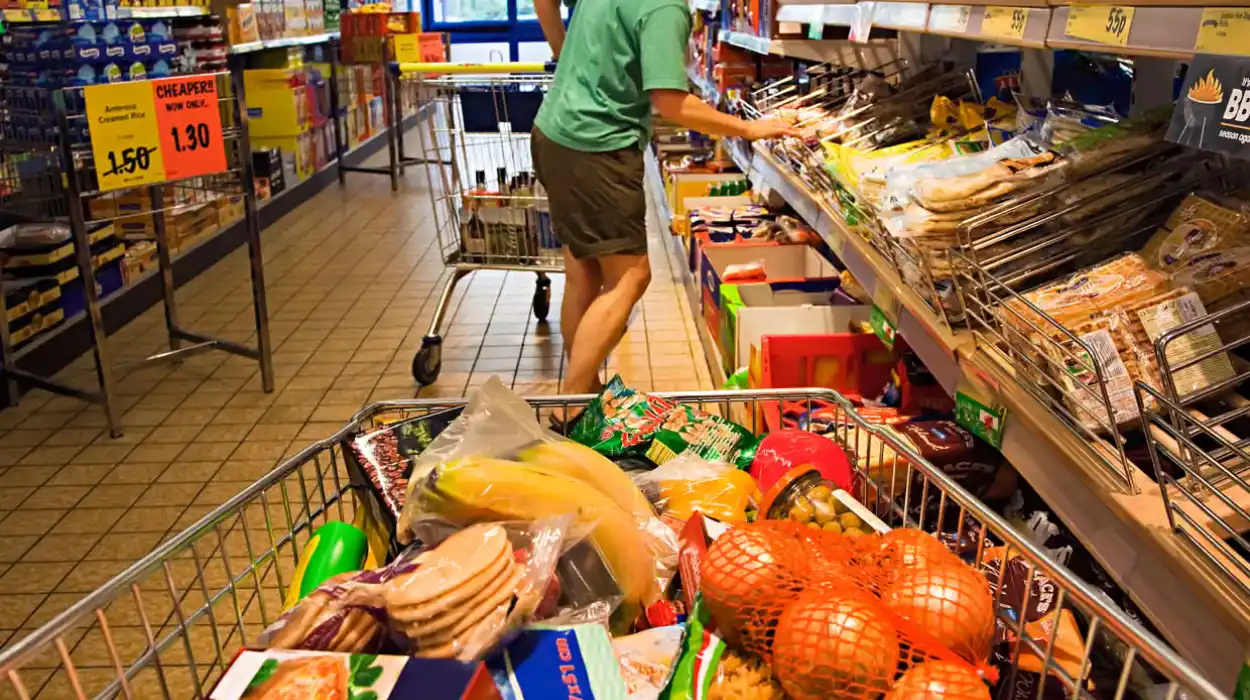UK (Parliament Politics Magazine) – UK inflation rose to 3.8% in July, driven by higher food, travel, and fuel costs, surpassing forecasts and delaying further Bank of England rate cuts.
As reported by The Guardian, Britain inflation climbed to 3.8% in July, fueled by rising food and travel costs, sparking concerns over delayed Bank of England rate cuts.
Office for National Statistics’ data on rising UK prices in July
The Office for National Statistics said the consumer prices index rose from June’s 3.6% to 3.8%. This surpasses the Bank of England’s 2% target for the 10th consecutive month.
July’s inflation came in 0.1 percentage points above forecasts, marking the highest level since it hit 4% in January 2024.
The 3.8% inflation reading exceeded market expectations of 3.7%, effectively ruling out further rate cuts this year.
Figures suggest rail fares are expected to rise 5.8% in 2026. This calculation comes from adding one percentage point to July’s 4.8% retail prices index.
According to the ONS, rising airfares pushed overall prices higher last month, with UK flights up 30% month-on-month, influenced by summer holiday timing.
Higher fuel costs pushed overall prices up, reversing last year’s declines at the pumps. Costs of food and non-alcoholic drinks jumped 4.9% annually in July, up from 4.5% in June.
UK fruit and vegetable prices have risen this summer due to droughts in Spain, Italy, and Portugal, despite prices normally falling at this time.
How will July’s inflation jump affect Bank of England rate cuts?
The Bank of England lowered interest rates to 4% this month, following forecasts of declining inflation over the next two years.
Several members of the monetary policy committee opted to keep interest rates unchanged until trends became clearer. The July rise in CPI may delay future cuts into 2026.
Firms say rising employment taxes and the effects of US tariffs have pushed UK prices higher, while droughts have increased the cost of fresh food.
Rachel Reeves’ views on rising inflation
Chancellor Rachel Reeves acknowledged rising inflation and said more action is needed after official figures showed a bigger-than-expected increase last month.
She said,
“We have taken the decisions needed to stabilise the public finances, and we’re a long way from the double-digit inflation we saw under the previous government, but there’s more to do to ease the cost of living.”
Ms Reeves stated,
“That’s why we’ve raised the minimum wage, extended the £3 bus fare cap, expanded free school meals to over half a million more children and are rolling out free breakfast clubs for every child in the country.”
She added,
“Through our plan for change we’re going further and faster to put more money in people’s pockets.”
Mel Stride’s stance on rising inflation and Labour’s policies
The shadow chancellor Sir Mel Stride said,
“This morning’s news that inflation has risen even higher than the 2% target is deeply worrying for families.”
He stated,
“Labour’s choices to tax jobs and ramp up borrowing are pushing up costs and stoking inflation – making everyday essentials more expensive. And with leading economists warning that the chancellor has blown a colossal blackhole in the public finances, families and businesses are bracing for yet more pain come the autumn budget.”
Mr Stride added, “Families are paying the price for Rachel Reeves’s economic mismanagement. Britain can’t afford Labour.”
What did Susannah Streeter say about the Oasis tour and inflation?
Susannah Streeter, head of money and markets for Hargreaves Lansdown, stated,
“The Oasis tour, which saw high demand for hospitality around the gig dates, has the potential to push up inflation in the sector during July.”
He said,
“We are unlikely to see the Gallagher effect show up in quite the same way as Taylor Swift’s bump to prices in June 2024.”
Mr Streeter added,
“But demand for hotel rooms, beer, bucket hats and Nineties-style gear could be one of the factors that keep inflation heading higher.”
What Did Ruth Gregory Say About Inflation and Interest Rates?
Ruth Gregory, deputy chief UK economist at Capital Economics, stated,
“While the rise in CPI inflation from 3.6% in June to 3.8% will fuel speculation that further interest rate cuts are off the agenda this year, the Bank of England expected such a rise, so we doubt the figures will move the dial too much on the outlook for interest rates.”
She said,
“A rate cut in November remains our base case, although the decision will be a close call and will depend on the data released over the next few months.”
Ms Gregory added,
“The risk is that inflation expectations and wage growth rise further and the next move down in rates does not happen until next year.”
How inflation is measured?
Inflation is measured by tracking a basket of common household goods and services.
Economists calculate the total cost of this basket into a single number, usually the Consumer Price Index. This index is then compared over time to see how prices change. The percentage change in the index reflects the rate of inflation.


